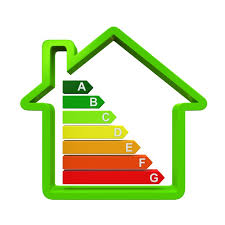 From 1st April 2018, new Minimum Energy Efficiency Standards (MEES) mean that commercial property must have a minimum EPC rating of ‘E’ before it can be leased. This means that landlords must not renew existing tenancies or grant new tenancies if the property has a lesser rating.
From 1st April 2018, new Minimum Energy Efficiency Standards (MEES) mean that commercial property must have a minimum EPC rating of ‘E’ before it can be leased. This means that landlords must not renew existing tenancies or grant new tenancies if the property has a lesser rating.
Currently commercial buildings can be let with a rating anywhere from A to G, with F and G being the least efficient. Given that an estimated 18% of commercial properties falling into these latter categories, the new regulations are being adopted to help the Government meet its carbon reduction targets for 2020 and 2050.
Properties that are excluded from minimum energy efficiency standards for commercial buildings
The requirement for a minimum E rating will not apply to all properties. Exceptions will include:
- buildings designed to be used separately to accommodate foundries or other hot processes
- packaging and storage warehouses where the air in the space is not fully heated or cooled
- workshops
- non-residential agricultural buildings with a low energy demand
- some listed buildings
- leases granted for 99 years or more
- temporary properties and holidays lets
Other Exemptions from the rules
If a property does not fall into one of the above categories, it may still be possible to claim an exemption from the new regulations in certain limited circumstances as follows:
- If a superior landlord, a tenant or a planning authority either refuses consent to make energy efficiency improvements or consent is given subject to conditions with which the landlord cannot reasonably comply
- If an independent surveyor concludes that all relevant energy efficiency improvements have been made to the property, or the improvements that could be made would not pay for themselves through energy savings within seven years
- If the energy efficiency improvements that could be made to the property are determined by an independent surveyor as likely to reduce the market value of the property by more than 5%
If a landlord successfully obtains an exemption, it must be registered on the central government PRS Exemptions Register. Exemptions are valid for five years but cannot be transferred to a new landlord. If the property is sold or transferred, the exemption will cease to be effective and the new owner will need either to improve the property to the minimum standard or apply for another exemption.
If a building does not qualify for the PRS Exemptions Register, or is not an exempt building because its use takes it outside the scope of the MEES, then from 1 April 2018 existing tenancies cannot be renewed nor can new tenancies be granted if the building has an energy rating below E.
Furthermore, after 1 April 2023 it will be unlawful for a landlord to continue to let any buildings which have an EPC rating of less than E unless the landlord registers an exemption.
Enforcement of the new minimum energy efficiency standards for commercial buildings
Enforcement of the new Minimum Energy Efficiency Standards will be the responsibility of the local authority. If they believe a landlord is in breach, a Compliance Notice may be served requiring the landlord to produce evidence of compliance with the regulations.
The penalty for leasing a property for fewer than 3 months in breach of the regulations will be the equivalent of 10% of its rateable value subject to a minimum fine of £5,000 and a maximum of £50,000. After 3 months the penalty increases to 20% of the rateable value with a minimum fine of £10,000 and a maximum of £150,000. The landlord will also be named and shamed by including details on the PRS Exemptions Register. The tenant will not be liable for a penalty and the lease will remain valid. The tenant will, however, still be bound to observe the lease covenants and pay the rent.
The landlord will be entitled to request a review of any decision and may be able to appeal to the First-Tier Property Tribunal if the penalty notice is confirmed.
Another consequence of the property not meeting MEES is that lenders may refuse to lend on properties where the EPC rating is ‘F’ or ‘G’ as this could affect their ability to sell or lease the property if they have to enforce their charge.
Can a landlord recover MEES costs from tenants?
The MEES regulations impose obligations on landlords, not tenants. A landlord cannot pass these obligations onto a tenant under the tenant’s covenant.
Under a full repairing and insuring lease of whole the landlord cannot recover MEES related costs from tenants, unless the lease contains specific clauses to this effect. For a lease of part, it may be possible to recover some MEES costs through the service charge depending on the wording of the lease.
Any new lease should ideally contain an express covenant by the tenant not to carry out alterations which will adversely affect energy efficiency as this could lower the EPC rating and prevent the landlord re-letting after the tenant has vacated.
If you are a landlord concerned about the impact of MEES regulations and how they could affect your property portfolio then please contact our expert commercial property team for advice and assistance. We will be able to advise if your leases require amendment and provide a competitive quote to make any necessary changes.
The Backhouse Solicitors Commercial Property Team
Tel: 01245 893400
Email: info@backhouse-solicitors.co.uk
Web: www.backhouse-solicitors.co.uk





